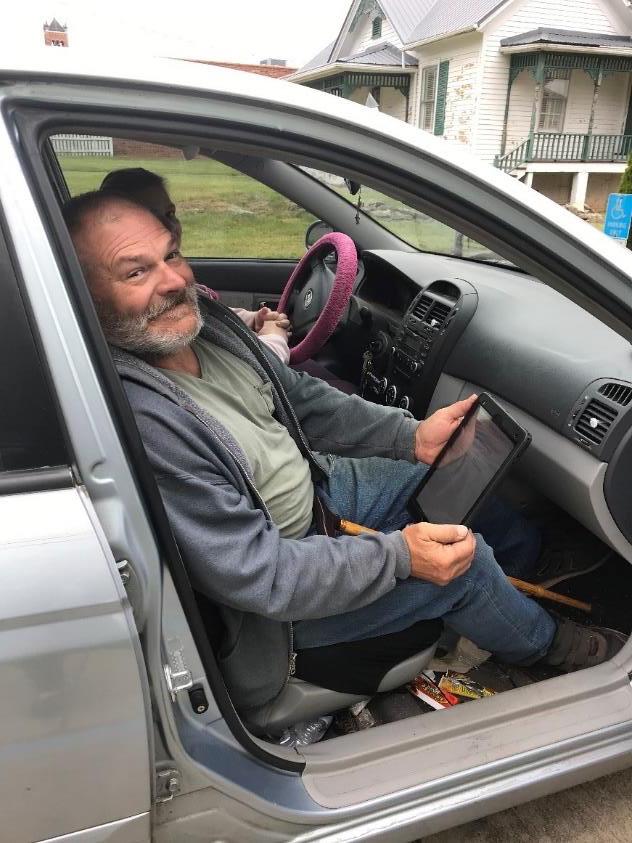Telehealth Grants Help Greensboro AHEC Area Practices Increase Access to High-Risk Patients During Pandemic
PLEASE NOTE: Greensboro AHEC is now known as Piedmont AHEC. The organization’s name changed on February 1, 2023.
The COVID-19 pandemic posed a key problem for health providers — how to safely deliver quality care to patients unable to visit physical spaces. For many, telehealth has been the solution—but implementing such projects costs money, and options for clinics serving patients from underserved areas are often limited.
“Not that anything good has come from the pandemic, but it has quote-unquote ‘forced’ people, mainly insurance companies in the for-profit sector, to accept telehealth as a way of doing business,” says Kim Rider, executive director of the Free Clinic of Rockingham County, which provides free medical care for uninsured people living at or below 200% of the federal poverty level. “It’s great for us, because our small entity couldn’t have afforded to build a telehealth platform.”

To assist practices like the Free Clinic, Greensboro AHEC awarded mini-grants of up to $10,000 to support telehealth projects in our service region in 2020. The initiative was funded by a $500,000 gift to the North Carolina Area Health Education Centers (NC AHEC) from the N.C. State Employees’ Credit Union (SECU).
Among the grant recipients were the Free Clinic, Belmont Medical Associates in Reidsville, and the Orange County Health Department. Each practice used the funds to develop a tech-based project that increased remote access and quality of service for its patients, especially the underserved and those in high-risk COVID categories. See their results below.
Telehealth “Parking Lot” Appointments at the Rockingham Free Clinic
Project: In reaction to an increased need for services due to COVID-19, the Free Clinic took steps to install a “parking lot” telehealth appointment setup in the fall of 2020 that allowed patients without access to online services to safely receive care. The clinic upgraded their internet service and purchased two tablets and a new provider laptop. The grant also provided for signage, marketing, staff training, and new in-home monitoring devices for traditional telehealth patients.
“The fact that we have a new tool in our toolbox to help our patients—that’s a game changer for us,” says Rider, whose clinic serves about 800 unique patients, many of whom are essential workers. The clinic also serves much of the county’s indigent Hispanic population, who benefit from the clinic’s full-time translator.
Outcome: The clinic substantially increased their monthly average of appointments and reduce the need for emergency room visits after implementing the project in the fall of 2020. They are now considering plans to build a HIPPA-compliant shelter for curbside patients.
School-Based Curbside Immunization Clinics Orange County Health Department
Project: Stay-at-home orders and limited clinic hours due to COVID-19 presented a barrier in ensuring N.C. high-school seniors were up to date on a newly-required booster immunization for the start of the 2020-21 school year. To meet this need, the health department partnered with Orange County, Chapel Hill, and Carrboro school districts to set up school-based curbside clinics to meet students where they were and safely provide immunizations and promote telehealth services.
Outcome: The department was able to vaccinate 60 students and schedule five students without primary care providers for telehealth appointments. The department is considering expanding hours for future curbside immunization clinics and continuing to schedule telehealth appointments.
Telehealth and Patient Communication Upgrades Belmont Medical Associates (Reidsville)
Project: The COVID-19 pandemic increased Belmont Medical’s essential need to advance their outdated digital communications to maintain connection with their patients, many of whom live rurally and have limited access to providers. For its project, the practice sought to improve their digital presence and patient communications with a focus on chronic-condition patients with comorbidities. The grant provided for new routers and provider computers as well as upgraded health record modules, website and social media improvements, staff training, and marketing efforts.
Outcome: The practice saw a 12% increase in patients seen from Q4 2019-2020. The project’s portal improvements allowed the practice to target specific patient groups for sending timely alerts.
For more information about Greensboro AHEC Practice Support and services available to practices, please contact Suzanne Lineberry at suzanne.lineberry@conehealth.com.
STORY BY JOSHUA DAVIS
